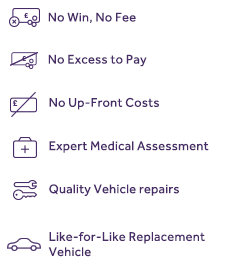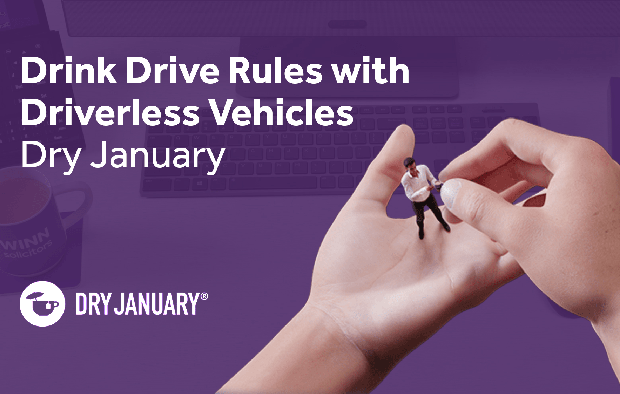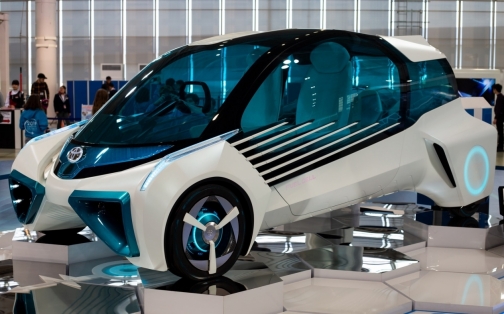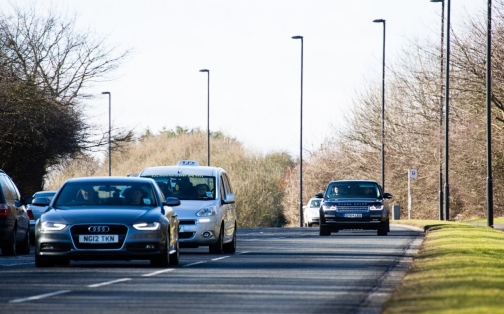

Dry January; Drink Drive Rules with Driverless Vehicles
Will driverless-vehicle technology change the landscape when it comes to the rules and regulations of drink driving?
Will driverless-vehicle technology change the landscape when it comes to the rules and regulations of drink driving?
All factors point to a future of vehicles that don’t require any input from the driver, or passenger in these circumstances, as the autonomous vehicle industry continues to attract huge amounts of investment.
Trials and tests have been conducted across the globe, with varying degrees of success. A pedestrian has already been killed by a driverless vehicle, but there have been many other instances of successful journeys without collisions with pedestrians or obstacles for the vehicle to navigate.
If this is the future, as is predicted by many, then what will the impact on current rules and regulations be?
Currently, it is permissible to have 80mg of alcohol per 100ml of blood in your body, in England and Wales. In Scotland, it has been reduced to 50mg, while in some countries across the globe – Croatia, Hungary, and Romania to name a few – there is a zero-tolerance approach to drink-driving.
Whether that would change with autonomous vehicles is very much open to interpretation. In the near-future, there is a tangible need for the driver to remain aware of their surroundings and be able to intervene should it be required as semi-autonomous driving becomes the norm. With the introduction of fully autonomous vehicles, will this still be the case?
Phil Brown, writer for 2025AD the Autonomous Driving Community, cites the discussion taking place in Australia, as they prepare for a driverless future and the laws that would need to be applied. The National Transport Commission in the country has argued in favour of an exemption, “but only if there is ‘no possibility that a human could drive’ the vehicle in question,” writes Brown.
He goes on to quote the NTC report further when it states; “To hold the human responsible may restrict the introduction of automated vehicles into Australia and unnecessarily deny or delay the many potential benefits of the technology.”
Is the human in charge of the autonomous vehicle?
Lawyer John French, when quoted by the Coventry Telegraph, discussed the nuances of being ‘in charge’ of a vehicle, which then sees drink-driving laws applied;
“If a motor vehicle is fully autonomous and thus relies wholly on a remote-control system to operate, then the question is, who is ‘in charge’ of the motor vehicle. In a fully automated vehicle, no human is in fact ‘driving’ the car. There is no law at present stating if you are in a fully autonomous motor vehicle that you are exempt from drink driving rules.
“However, it appears to make perfect sense that an individual being driven in a fully autonomous vehicle cannot be a ‘driver’ in any sense of the word or be ‘in charge’ of the vehicle and is merely a ‘passenger’ - ie akin to being in the back of a taxi.
“Therefore, until the law is fully clarified anyone inside a semi-autonomous or fully autonomous motor vehicle can still be convicted of being ‘in charge’ of a motor vehicle and therefore at the mercy of the law.
“The safest advice at the moment is that irrespective of whether a vehicle is semi-autonomous or fully autonomous that if you are found to be over the prescribed drink driving limit then you could still be charged and convicted with drink driving which could lead to a significant driving ban and fine. The Government needs to formally clarify the law in this area as soon as possible.”
For support to reduce your alcohol intake, visit: Alcohol Change UK
For more on Winn Solicitors Dry January activities, visit our Campaign page at: Dry January 2020
Links:
Share this article
Existing Client?
Keep on top of your claim 24/7, 365 days a year with Touchpoint, accessible from any internet-enabled device.
Why choose Winn Solicitors




